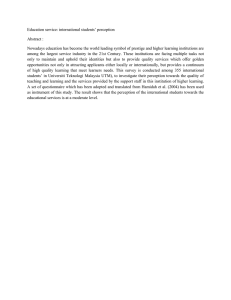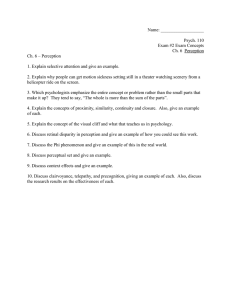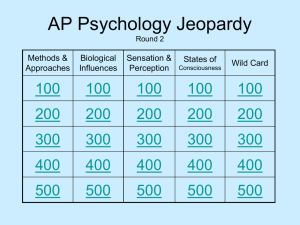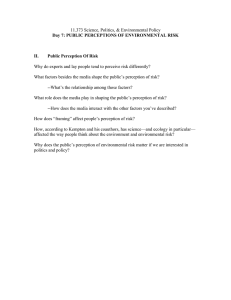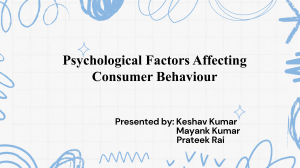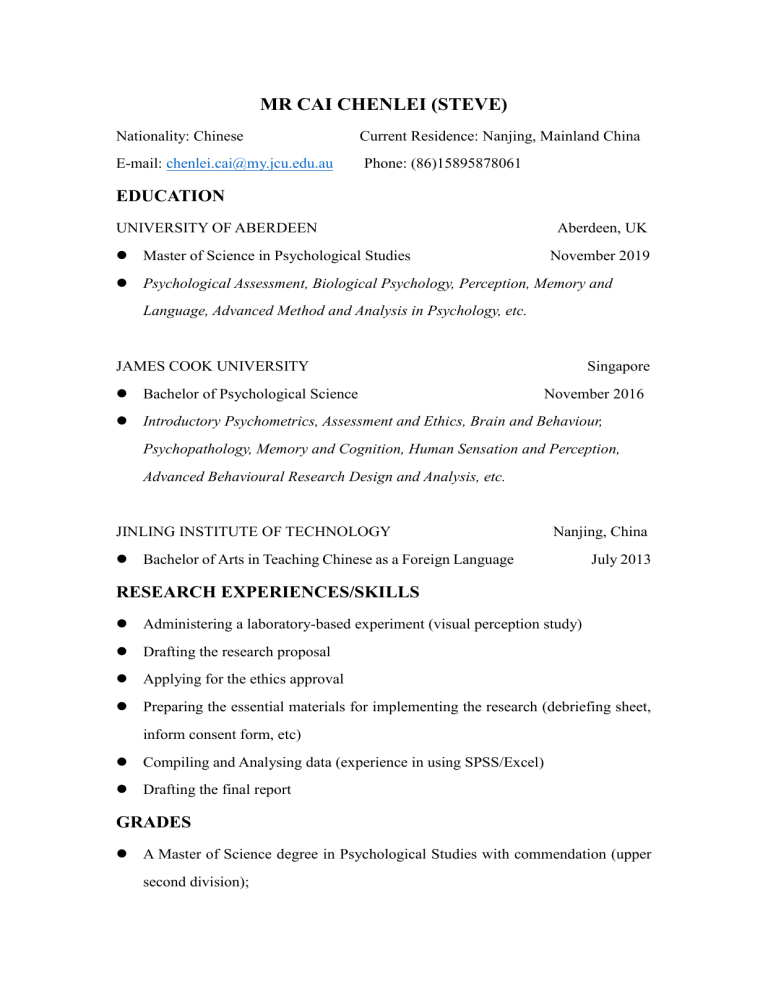
MR CAI CHENLEI (STEVE) Nationality: Chinese Current Residence: Nanjing, Mainland China E-mail: chenlei.cai@my.jcu.edu.au Phone: (86)15895878061 EDUCATION UNIVERSITY OF ABERDEEN Aberdeen, UK Master of Science in Psychological Studies Psychological Assessment, Biological Psychology, Perception, Memory and November 2019 Language, Advanced Method and Analysis in Psychology, etc. JAMES COOK UNIVERSITY Singapore Bachelor of Psychological Science Introductory Psychometrics, Assessment and Ethics, Brain and Behaviour, November 2016 Psychopathology, Memory and Cognition, Human Sensation and Perception, Advanced Behavioural Research Design and Analysis, etc. JINLING INSTITUTE OF TECHNOLOGY Nanjing, China Bachelor of Arts in Teaching Chinese as a Foreign Language July 2013 RESEARCH EXPERIENCES/SKILLS Administering a laboratory-based experiment (visual perception study) Drafting the research proposal Applying for the ethics approval Preparing the essential materials for implementing the research (debriefing sheet, inform consent form, etc) Compiling and Analysing data (experience in using SPSS/Excel) Drafting the final report GRADES A Master of Science degree in Psychological Studies with commendation (upper second division); LAST RESEARCH PROJECT. Title: The Effect of Self-Prioritisation on Visual Perception Description: A laboratory-based research based on the findings of Sui, He, and Humphreys (2015). In the study, participants were asked to form new associations between tilted gratings (oriented Gabor-shapes) and two identity labels (you and stranger). Afterwards, these gratings and labels were presented in pairs that were in line with the formed association (match-trial) or in a different combination (nonmatch-trial). Previous studies have shown that participants are faster and more accurate in responding to match-trials for the shape associated with the label "you" (Sui et al., 2015). This was interpreted as a change in perception based on selfprioritisation (i.e. information to the self is processed with higher priority). However, from a range of different studies, we know that self-reference also influences other factors like memory strength. The tasks that followed the matchnon-match task were designed to directly test the effect of self-reference in three perceptual tasks: detection, change detection and visual search. If associating a stimulus with the self was to enhance perception, we would expect an improvement in one or more of these tasks. Which tasks show improvement will let us know where this prioritisation arises. If we however only replicate the match-non-match results, then this would be evidence against a direct perceptual influence of selfreference. The research project served as the fulfilment of the requirement in stage 3 of the master’s program. MORE ABOUT ME Good command of written and spoken English Native speaker of mandarin Chinese Strong motivation and interest in psychological research, and hope to expand my interest to neuroscience Plan to achieve a PhD degree in psychology-related field.

